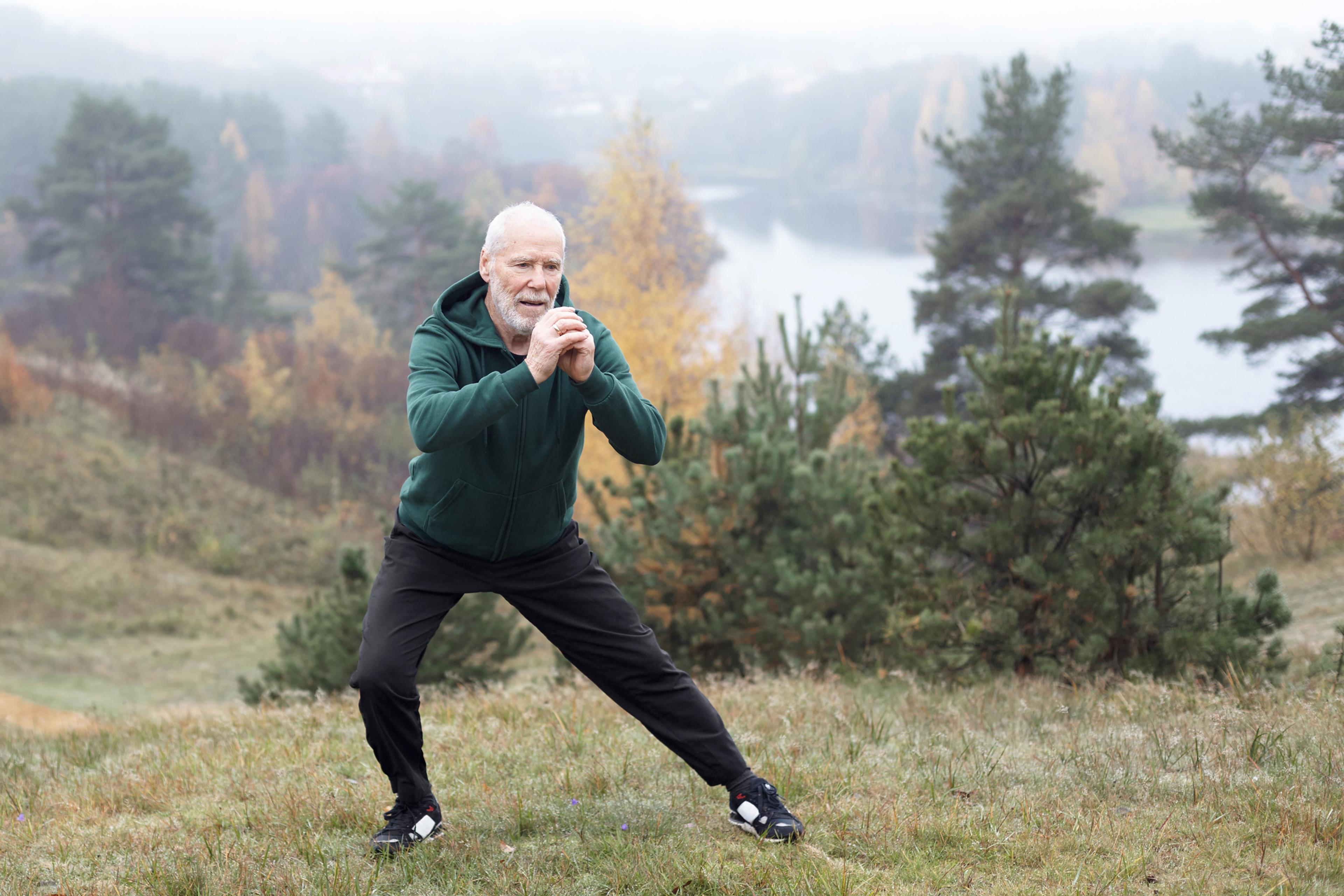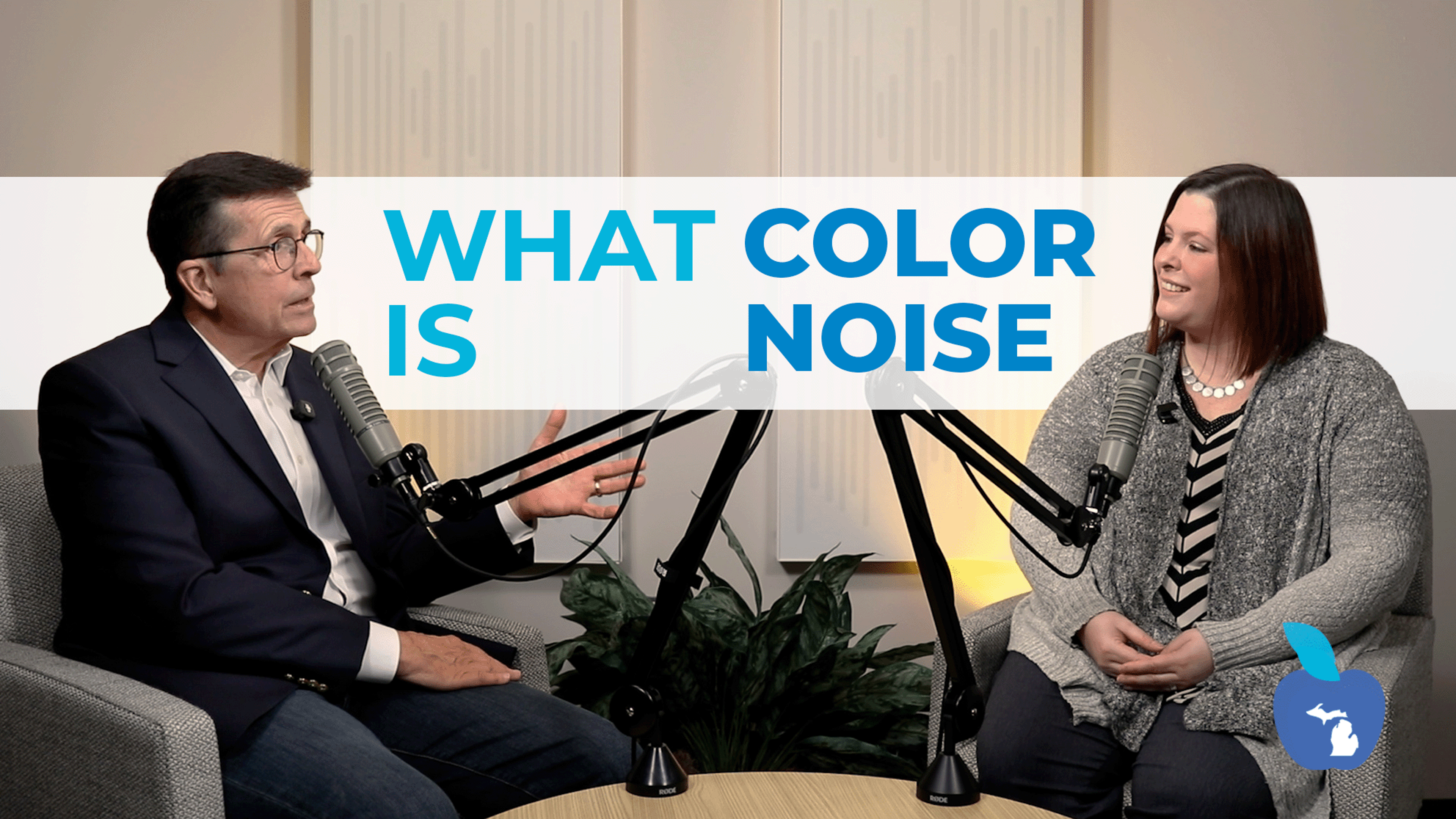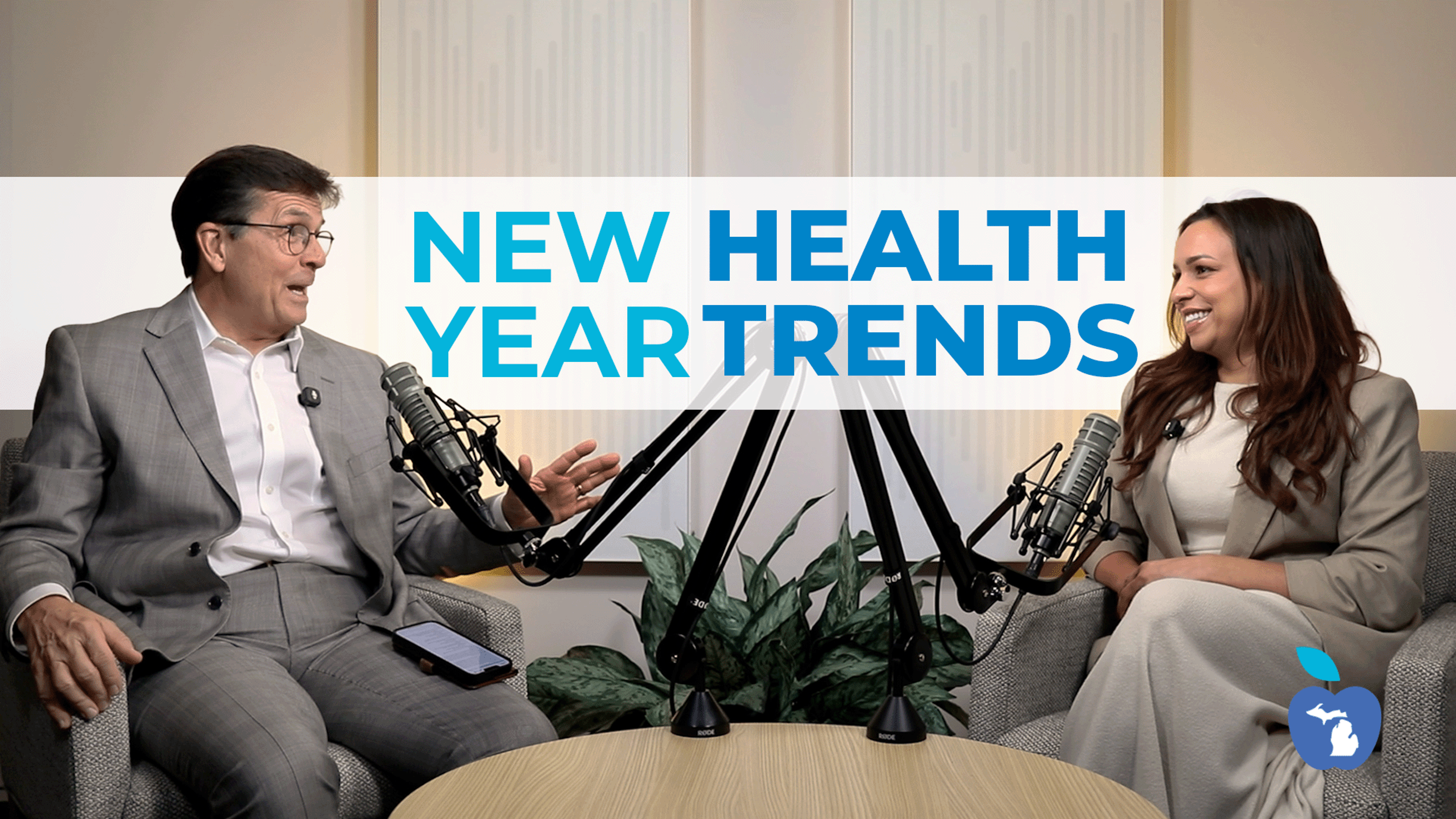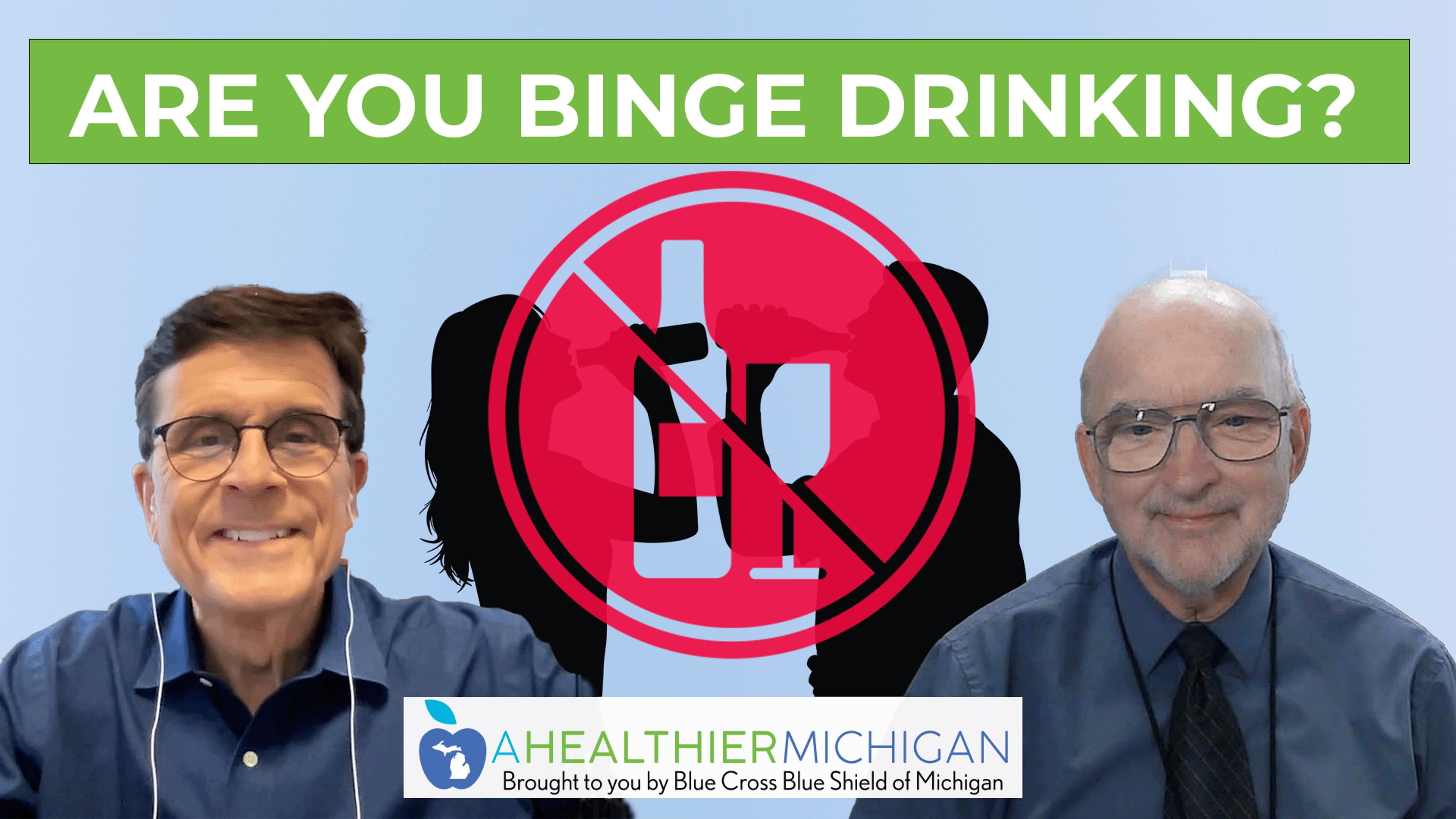Lifestyle Changes for Longevity
| 1 min read

00:00
00:00
About the Show
In this series, we’re exploring the balance between what you can and can’t control when it comes to your health.
On this episode, Chuck Gaidica is joined by Senior Vice President and Chief Medical Officer for Blue Cross Blue Shield of Michigan, Dr. James Grant. Together, they explore how small changes to our lifestyle can positively impact longevity.
In this episode of A Healthier Michigan Podcast, we explore:
- The most impactful healthy habits people can adopt to reduce the risk of chronic disease.
- Small achievable steps to build a healthy lifestyle.
- Maintaining healthy habits over the long term.
Transcript
Chuck Gaidica:
This is A Healthier Michigan podcast. I'm your host, Chuck Gaidica, and in this episode of a four-part series, we're exploring the balance between what you can and can't control when it comes to your health. On this episode, 177, we're exploring how small changes to your lifestyle can positively impact longevity. With us today is senior vice president and chief medical officer for Blue Cross Blue Shield of Michigan Dr. James Grant.
This is A Healthier Michigan podcast. I'm your host, Chuck Gaidica, and in this episode of a four-part series, we're exploring the balance between what you can and can't control when it comes to your health. On this episode, 177, we're exploring how small changes to your lifestyle can positively impact longevity. With us today is senior vice president and chief medical officer for Blue Cross Blue Shield of Michigan Dr. James Grant.
Dr. Grant, good to have you back.
Dr. James Grant:
Great to be back, Chuck.
Chuck Gaidica:
Yeah, thanks for being here. We hear so much, especially as we transition from one year to another, about quick fixes and lots of studies come out and wellness trends, and it's easy to get caught up in chasing, maybe it's the next best thing or shiny object when it comes to giving ourselves the best chance at a long and healthy life. But with developing a healthy lifestyle, it may be less of a sprint to the finish line and more of a marathon. So in fact, a study done by the Harvard T.H. Chan School of Public Health found that low risk lifestyle habits are critical for a longer life expectancy. So what lifestyle changes can we make to positively impact not just longevity, our lifespan, but also our health span?
Dr. James Grant:
Chuck, there's a number of things we can do to take a look at making our life longer, and as important as longer, better. First thing, and some people may want to hear this, may not want to hear this, consistent exercise. Go into the gym three times a week for at least 45 minutes. If you can't make it to the gym, 150 minute of moderate exercise. Those are just two principles.
I'll go through some basic things before we go deeper, but you got to do things like a well-balanced diet. Make sure you've got all the food groups represented. Make sure you've got plenty of servings of fruits and vegetables. I can't tell you how important that is.
What we call in the medical world, good sleep hygiene, I'll just phrase it. Get your sleep in. As we get older, it gets tough to sleep a solid eight hours. As we get busier, it's tough to get to sleep at good eight hours, but we've learned over time that actually sleep decrease blood pressure, increase longevity. It actually is really important to maintaining your health.
Focus on your mental health. Focus on external stresses in your life. Do everything you can to rid of them or to deal or cope with them or get help with them. If you smoke or vape, cut it out. That's the simplest way I can say it, just cut it out. It's got to go.
And reduce your alcohol intake. I'm not saying that you never have to have a glass of wine, but I'm saying watch what you have. You don't have to have a bottle a day. You don't have to have six beers a day. Social drinking's fine. A glass of wine here and there is fine. Just be very conscious of your alcohol consumption.
Chuck Gaidica:
So a lot of what you're saying, sleep hits me. I sleep routinely about seven. That's just the way my body clock is wired, but sometimes for some of us, it's you've got to have better sleep hygiene because you need a CPAP or you need to stop taking your IPAP. A lot of what you're saying requires at least a little bit of action, right? You got to start something different.
Dr. James Grant:
Yeah, you've got to start somewhere different. Obviously, if you're at risk for sleep apnea or you find you're not actually sleeping well at night, you go see your primary care doctor who may send you to a sleep specialist. And if you need a CPAP machine, you need a CPAP machine. In the old days, we'd say sleep apnea had to do with weight and had to do with neck and had to do with body habits. All that's still true today, but we're finding over time that you can have thin people with long necks who still have sleep apnea. And sleep apnea causes a lot of disease. But sleep apnea, Chuck, also has a simple cure and it's to put on the mask.
Chuck Gaidica:
Yeah. Well, you're talking about a lot of things that many might think is just going to affect my health later this afternoon, but you just showed with sleep apnea, this can be a chronic disease issue that you're looking to reduce through these small, healthy habits, right?
Dr. James Grant:
Right. Let's talk about something as simple as sleep apnea. So sleep apnea, if you have a CPAP machine and you sleep well, you're probably going to be more alert and awake all day. Let's say you don't have a machine, you didn't sleep that well, or maybe you didn't even know you weren't sleeping that well, you may say, "No, I slept through the night," well, we don't know how exactly how well you were sleeping or how many times you stop breathing during the night. And that affects your heart. It affects your blood pressure. And actually, it's a really great cause of something called pulmonary hypertension. That's not the same hypertension as we talk about when we have our blood pressure taken at the doctor's office. And that's something really, really difficult to treat, and it actually has black flow issues on the heart and the lungs.
Chuck Gaidica:
Wow. And I'll admit to you right now, I have a CPAP, and for me, it is like breathing oxygen. I put that thing on and I'm gone. Now, I know people who fight it their entire lives and they're like, "No, I'm not. I can't. I won't. It doesn't fit right," but there's no action involved beyond the first visit, and then they're living this problem where they could see other results because of it.
Dr. James Grant:
Right. I mean, yeah, it doesn't fit right. Well, you know what? My answer to it doesn't fit is? Get one that fits right.
Chuck Gaidica:
Right, yeah.
Dr. James Grant:
There's plenty of options. You don't try on a pair of pants in the store and say, "I'm not going to get them because they don't fit right." No, you get the next size and we get a different pair. And that's the same thing with sleep apnea machines. If it doesn't work for you, there's ones that go in your nose. There's the ones that go over your mouth. There's ones that go over your... I mean, there's all sorts of things. Get one that fits right. Sleep apnea is an easy, easy thing to cure.
Chuck Gaidica:
Yeah, it's great encouragement for a lot of people. And there may be a lot of folks who are listening who are just starting out because they've got a New Year's resolution or maybe they had it and they've already broken it, but give us some idea of the small achievable steps that you would recommend. Small little steps, maybe they're smart goals, whatever they are that we can really take to the bank and say, I can do this.
Dr. James Grant:
You know what? They're simple things. We started off with this. Let's talk about exercise, and it depends where you are. Go to the gym three times a week, at least 45 minutes. You know what? We all get busy. You can't do three times a week, 45 minutes? Do five times for 30 minutes. Maybe you've got some ways of rocking around your neighborhood, walk around for an hour. It depends how cold it is, but you can do that. Those are simple things to do. And as you'll see, if you can do the three times a week for 45 minutes, you should be able to eventually do four times a week for 45 minutes or five times a week for 45, and you'll actually develop that training and your body, you're going to see how much better you're going to feel.
And people say, "Well, I don't have enough time." You have to make the time. You don't say you don't have enough time to drive to work. You know you got to do it. It's part of your routine. If it means I'm getting earlier or going after work, you got to do it. It's part of maintaining your body.
I mean, sometimes, Chuck, we maintain our cars far better than we maintain our bodies. And a car, you can get a new car... Well, you can get a new car depending on what you are whenever you want, but you get a new car every three years, five years, eight years, 10 years. You only given one body. Make it work.
Chuck Gaidica:
Well, we're in Michigan. This is so interesting. I have a buddy and his wife who just moved back to Michigan from the Carolinas, and one of his first texts to me was, "We're trying to get used to the cold, but we're also trying to get used to all the clouds." So there is this thing in Michigan where the clouds settle in, the gray doesn't go away for a while. And for some, that affects our motivation, to maintain these healthy habits, or to your point, it's too cold to walk. Well, as a multitasker, I've developed a habit to make phone calls while I'm walking around the house. It's just extra in my mind. But what else can you say that we should develop over the long term? Maybe there are hacks like that where we can, if our life is busy, if we have challenges, if we need to multitask, what else can we be doing?
Dr. James Grant:
We have to be conscious of it. We have to be conscious of what we're eating. It's very simple. If you go out to eat and they say, "Do you want french fries or fruit?" it's easy to say french fries, but really, you want the fruit. It's easy... Simple things right away. Stop the smoking. Watch your alcohol consumption. I mean, there's no reason.
We all know that there's days in Michigan where you don't see the sun. I think lately it's been weeks in Michigan where we haven't seen the sun, but that's not an excuse to jump into a bucket of macaroni and cheese. That's something that we just have to understand. And when you go out and exercise, that's a perfect example, we know when you exercise, it actually will stimulate your well-being and you may not have that interest in eating. Let me have two buckets of macaroni and cheese and one bucket of french fries and all the comfort foods you can find. Your body actually will actually be excited in saying, "Hey, how about we're going to have a salad for lunch today? How about going to have some lean protein for dinner tonight?" that kind of stuff.
Chuck Gaidica:
Well, and that comfort food thing, that can go both ways because some people are wired, if it goes too well today, I'm going to go for the cookies or the mac and cheese, and if things go too poorly, same problems. So knowing thyself and how to get past those challenges is a good idea, huh?
Dr. James Grant:
Yeah. And Chuck, just running for the... On Monday, it's just a bad day and you decide to jump for the mac and cheese, that doesn't mean you have to do it on Tuesday, Wednesday, and Thursday, or it doesn't mean you like if you do it on Monday, when Tuesday comes, say, "Well, I already blew it for this week." Hey, you know what? When we're driving a car, if we run out into the wrong lane for a little bit, we don't say, "We're done." Just get back in the lane. You'll be fine.
Chuck Gaidica:
No, that's really great advice. And I look at my contemporaries, so different age group than our kids. Now our kids have kids. But it leads to this question of starting healthy habits. Is there ever an age that's ideal to begin or ever an age where you shouldn't begin these new healthy habits in your life?
Dr. James Grant:
There's never an age to start. It's always right from the beginning, and there's never an age to stop.
Chuck Gaidica:
That's great. And I get encouraged when I see, you probably saw Dick Van Dyke celebration getting to 99. And the guy's dancing, and I'm thinking whether it's he or the late Betty White, I look at these people who the camera shines on, and I love Dick Van Dyke anyway, but I look at him and I think, what an encouragement that this guy was graced with a long lifespan and it appears generally that his health span is equal to that. He's not having 10 or 15 crummy last years. Right? I mean, that's an encouragement to us when we see somebody getting beyond what most finished lines are and you think, "Wow, that's my goal. That's my why."
Dr. James Grant:
And that's one of the things you have to take a look at to say, you know what? If Dick can do it, so can I. And you know what? I would rather live 10 years and cut out comfort foods. I would rather go to the gym five days a week and live a longer life. And these are just some trades and balances. Are we going to change the genes that we were given? No. But are we going to be able to do it... Do we want to do everything we can to make it work? For sure.
Chuck Gaidica:
So as a doctor, when you look at in your vast career, because it spans multiple disciplines and you've seen a lot of people, what advice do you give to people about the correlation between their healthy habits and their longevity? What do you point to that really makes sense? Because a lot of what you're giving us are aha moments, really, as simple as they may sound.
Dr. James Grant:
Like I said, I started off saying this, watch your diet, fruits and vegetables. Make sure they're integral parts. Lean proteins. Make sure they're integral parts. Get your exercise, reduce your stress, be a happy person. They've shown the people that are generally happy tend to live longer. Be positive, cut out, extraneous things, like I said, smoking and alcohol consumption. These are all little things that can have great benefits.
Chuck Gaidica:
And why is it? It can't just be the pandemic and coming out of there because we couldn't shake hands, we had no community. I get all that, but what is it about the simplicity of some of your advice that for some of us, I know we get it, we just don't do it?
Dr. James Grant:
It's just easier. It's easier not to go to the gym. It's easier to grab comfort food along the way. It's easier to go out to a high-salt, high-fat diet, to a restaurant. Just be careful. I'm not saying you shouldn't go out to restaurants, doesn't matter. I think you should, but watch what you order. Watch what attracts you. I mean, I'll be honest with you, one of the things I've always said or noticed, when you go to the restaurants that list calories, you order differently.
Chuck Gaidica:
Even when I take my grandson to one of the local donut chains and I see that the little bits or the donut holes are 80 or 90 calories, that's enough for me, one. I always felt embarrassed like, "Oh, I'm not doing my share for the store." I was like, no, I'm past that. I don't want a donut. I don't want it filled. I don't want it frosted. I want one. That's it.
Dr. James Grant:
One donut hole. That's all you need sometimes.
Chuck Gaidica:
Yeah.
Dr. James Grant:
One donut hole, 80, 90 calories, and you're done. And you're satiated and you're happy, and you don't have that extra 300 calories.
Chuck Gaidica:
So as we start to wrap up, give us some more takeaways or takeaways from what you've already discussed about things that we should put on our list. It's still very early in the year. Spring isn't going to be too far away. Sometimes we get a thaw. So we've got these moments that can be encouragers to us to get active, but what else would you suggest we think about?
Dr. James Grant:
Activity, diet. One of the things that we didn't talk about, people tend to ignore, but it's really important, get your teeth cleaned every six months. We didn't talk about that one. Get your sleep, and if you don't think you're sleeping well, see your primary care doc because there's plenty of sleep doctors out there that can help you. Focus on your mental health. If you're depressed, if you're sad, if you're emotional, if you're stressed, listen, we've got treatment for that too. Cut out the smoking. Cut out the alcohol. Live a healthier, happier life.
Chuck Gaidica:
Good stuff. We can all make our list for a happy and healthier new year, and we hope you have one as well.
Dr. James Grant:
You too, Chuck.
Chuck Gaidica:
Yeah, good to see you, Dr. Grant.
Dr. James Grant with us today. He's always a fountain of great information. He's senior vice president and chief medical officer for Blue Cross Blue Shield of Michigan. We're glad you're here. Thanks for listening to A Healthier Michigan podcast, brought to you by Blue Cross Blue Shield of Michigan. If you like our show, you want to know more, check us out online at ahealthiermichigan.org or you can leave us a review or rating on Apple Podcast or Spotify. You can also follow us on Facebook, Instagram, or X. You can get new episodes like these, old episodes, take them with you on your walk, wherever inside, outside. You can do it on your smartphone, on your tablet. And be sure to hit subscribe on your Apple Podcast, Spotify, YouTube, or favorite podcast app. I'm Chuck Gaidica. Stay well.





